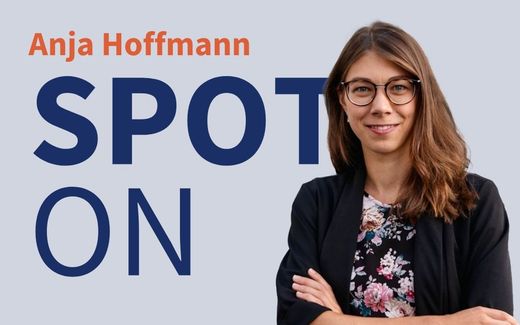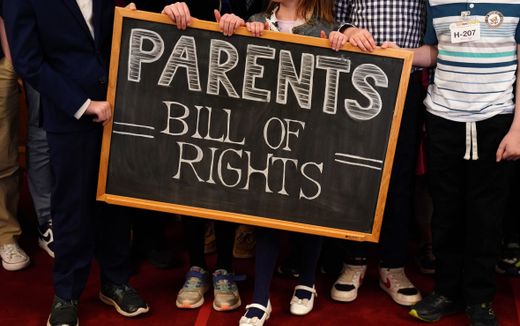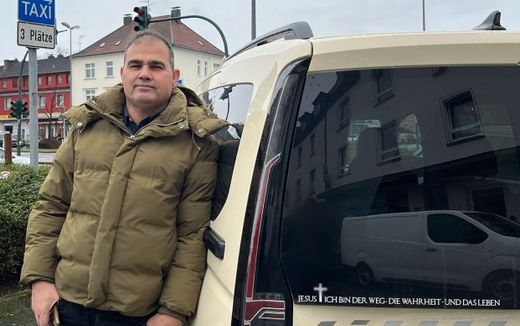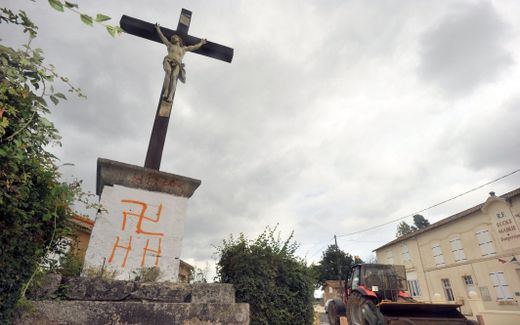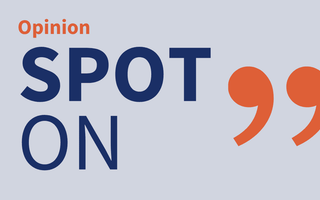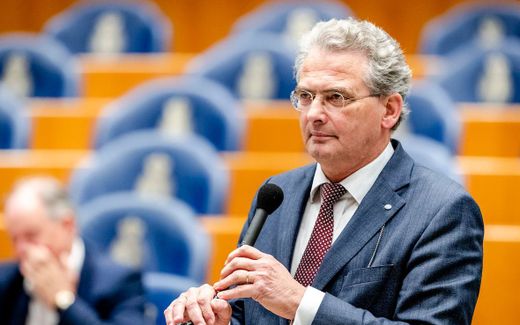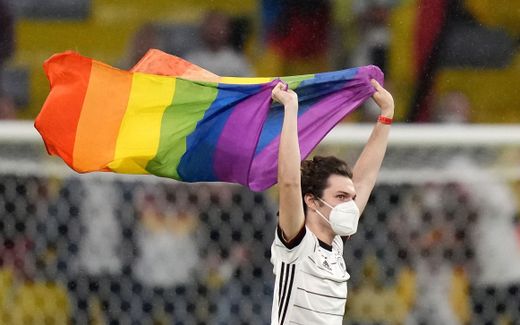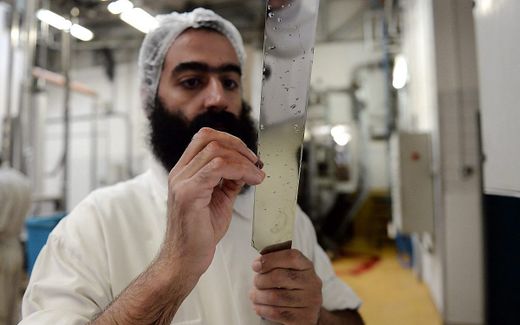Anja Hoffmann is determined to defend the Christian voice in Europe
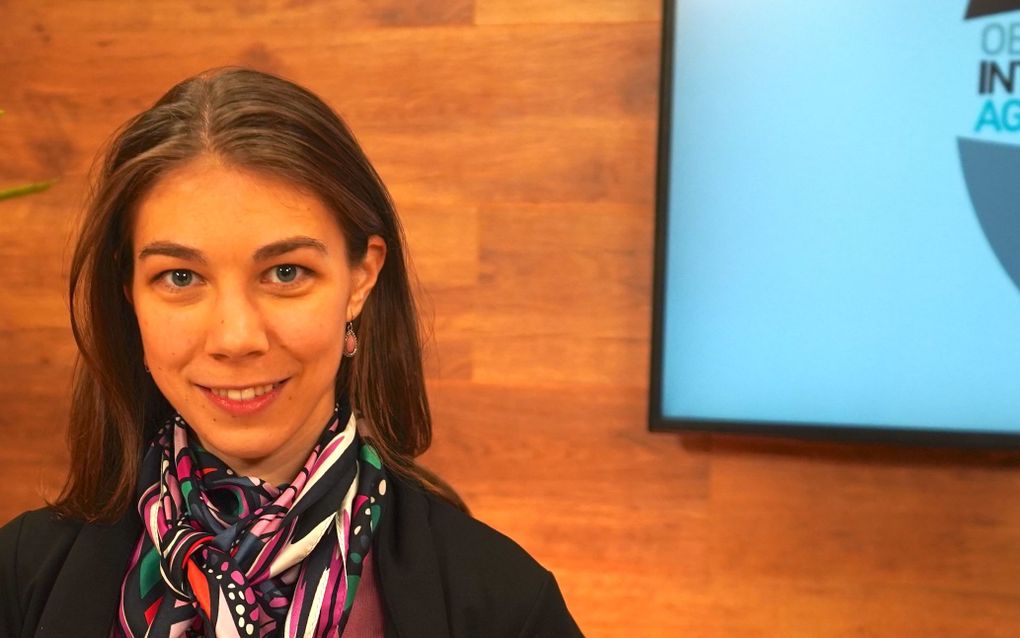
Anja Hoffmann. Photo OIDAC
European Union
Anja Hoffmann looks around Europe to see how free Christians are. She knows there are concerns. As soon as she sees a problem, she dives into it for research. From today, Anja will contribute as a columnist for CNE.news.
Stay up to date with Christian news in Europe? Sign up for CNE's newsletter.
Hoffmann combines a background in academic research and political experience. With that, she seems the right person at the right place as director of the Vienna-based Observatory on Intolerance and Discrimination against Christians in Europe (OIDAC). “I wish for and dream of a future in Europe where the Christian message can be heard in debates about what is best for the human person. Christianity has a lot to offer in this respect.”
Hoffmann (born 1992) was born and raised in Vienna. Her parents, of Austrian and German descent, attended an ecumenical charismatic community. “This community formed the spiritual environment I grew up in. Personal faith was key in this congregation. I was very blessed by having many Christian friends and by belonging to a youth group, Youth with a Mission in Austria, to which I was very committed and which formed my faith.”
As a teenager and university student, Anja struggled with her faith. She attended a secular gymnasium and studied Transcultural Communications from 2011-2014 (including English and French courses). “As a teenager, I started to ask myself the question of whether my faith was personal or simply something imposed on me by my parents. At school, I was confronted by teachers who interrogated my faith and, with some hostility, made fun of my beliefs.”
This trial of her faith continued at the university, where Anja, moreover, lacked the company of Christian friends. The atmosphere at the university was very relativistic. “Being a believing person was okay, as long as you kept your faith to yourself and would not try to convert people by claiming that the Christian faith is true. It was impossible to be very outspoken on relevant themes such as the nature of the human person and the beginning of life. I became cautious and started censoring my views. And I concluded that witnessing by personal relations and friendships was better and more effective than proposing arguments.”
Anja Hoffmann continues that her struggle with the post-modern perspective was also inside herself. “Is everything equally true? Is everything completely subjective? Or is faith a conscious decision, also based on rational reflection?”
Anja Hoffmann realises that this atmosphere of relativism is now even more dangerous than the old hostility. In the former circumstances, you had to stand up for your faith, articulate it, defend it, and witness it. In the new circumstances, hiding yourself in this postmodern subjectivity is tempting. Once you accept that faith is only a personal perspective and preference, they will leave you alone—once you take their paradigm.
Hoffmann remembers a day she was struggling. “I became rather angry after a discussion in class, in which it was suggested that faith is based on a good feeling or lifestyle. That was not the reason I believed! And I had also noticed that a common basis for all rational reflection was missing. Presenting your persuasions was experienced by fellow students as an act of violence, an act of emotionally harming them. On my way home in the metro, I listened to a podcast on post-modernism by the German philosopher Hanna-Barbara Gerl-Falkovitz. That was a very distinct moment. She essentially explained that the post-modern perspective on religion as just a personal preference, where truth is a non-debatable no-go, with an ensuing anything-goes-ethics, was a conversation killer.”
Anja’s BA thesis was about the transculturality of human rights. In it, she answers the question of whether human rights are culturally determined and hence relativistic or absolute, revealing something universally true about the dignity of the human person.
After a year in France, to improve her French and work on her spiritual formation, Anja Hoffmann started to work for Open Doors International in Germany (2015-2017). “I worked on the well-known yearly index of the persecution of Christians in South-East Asia and China. I concentrated on methodological questions: how can we rank countries? By which standards?”
Anja’s MA thesis is about the question of how to measure religious freedom and how to compare countries. Part of her thesis consists of the similarities and differences between the method of Open Doors and the method of the Pew Research Center. She concluded that the method used by Open Doors is more adequate for measuring the state of religious freedom than the method adopted by Pew Research.
After this experience, Anja Hoffmann worked for the Austrian MP Gudrun Kugler (from 2017 until 2022). As a parliamentarian, Kugler, a member of ÖVP (the Austrian People’s Party), focused on human rights, preparing and defending legislation in the human rights committee. During this period, Anja Hoffmann drafted resolutions and participated in background negotiations. She learned to ask some essential political questions: What is possible? When is it possible? Under what circumstances? “I learned to understand the system.”
After five absorbing years in politics, Anja Hoffmann thought it would be a good idea to have a break and add to her intellectual formation. She returned to the university and studied for one year at the Great Books Programma of the International Theological Institute in Trumau, France. “There, I learned much about the philosophical foundations of Christian ethics and human rights.”
And now Anja is back in the intellectual life of action. Last year, she joined OIDAC, the Observatory on Intolerance and Discrimination against Christians in Europe. One of her responsibilities is to write an annual report on the state of religious freedom in Europe. The latest report was published last month. “My focus is back again. And that’s a privilege. We try to understand and analyse the developments in Europe and investigate the consequences for Christians and other believers.”
“In this position, my inspiration comes from the testimonies of so many Christians facing discrimination and even persecution, who nevertheless testify how important religious freedom is and who are willing to confront and safeguard a pluralistic society without censorship or cancelling. I wish for and dream of a future in Europe where the Christian message can be heard in debates about what is best for the human person. Christianity has a lot to offer in this respect. So, we have to safeguard the Christian voice in the public sphere of Europe.”
Related Articles


